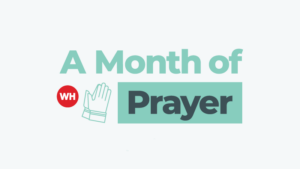America was established by whites and for whites, usually at the expense of non-white people. This created systems that advantaged whites through things like access to land ownership, the right to vote, etc., and disadvantaged non-whites, most obviously through the horror of slavery. While these eventually ended, the consequences of this racist history have lasted to the present, continuing to disadvantage people of color. In the aftermath of a hurricane, things aren’t automatically better just because the storm is over. Even after explicitly racist laws have been brought to an end there is still an aftermath (especially as a storm is an act of nature, but racist laws are intentionally designed by humans). So it’s not surprising that in general, life in America continues to work best for white people and they tend to assume their experience of its goodness is normal and true for everyone. Then, when black and brown people cry out that this is not true, it is all too easy for white people to accuse them of “playing the race card” or as interpreting everything through the lens of racism.
Do people of color sometimes misinterpret some things as racist that were not? No doubt. But it happens no more so—and probably much less so—than the number of times white people “misinterpret” the experiences of people of color as having nothing to do with systemic racism.
It is also true that a comparatively small number of black and brown people flat out deny that systemic racism is an ongoing problem in America. Some of these spokespersons faced difficult challenges growing up and yet managed to escape poverty and thrive in American society. When white people hear this, many assume that if these individuals overcame the obstacles they faced by sheer determination, then everyone else should be able to do the same, right? Partially this comes from concern that talking about “systemic racism” only encourages black and brown people to “blame the system” for their misfortunes rather than taking responsibility for their own destiny. Some go even further and accuse white “liberals” of purposely creating the “myth of racism” to keep black and brown people disempowered. After all, if people believe they need liberals to rescue them, they will keep voting for them.
However, arguing that systemic racism does not exist while also claiming that “liberal” politicians promote a “victim mentality” to gain black and brown votes is actually arguing an example of systemic racism! This view says that systemic racism does exist to the extent that it conditions the free choice of the majority of black and brown folk in America. If free choice explains group behavior, how do we explain why the majority of black and brown people “freely choose” to be victimized by these liberal politicians?
The reason white folks like to point to the success of individual black and brown celebrities is because it fits their worldview that in America, anyone who works hard enough can rise above hardship to become anything, even president. This may reflect the experience of many white people, but it has never been the common experience of most black and brown people. The success of people like Obama and Oprah is not evidence against the continuing systemic racism in American culture and the white American church.
Of course, the election of a black president is no small thing! But the idea that America’s systemic racism ended with Barack Obama or with Martin Luther King, Jr., denies both the continued experience of the majority of black and brown folk and the reality of “the principalities and powers” the New Testament speaks of. [1]
Indeed, failure to address “the powers” can have unintentional racist consequences. If a person refuses to appeal to systemic forces to explain statistical group inequities, they are left with individual choice alone. From this perspective, the next logical conclusion would be that some black and brown people simply choose to succeed while others do not.
In our society, black males are nearly six times as likely to be incarcerated as white males while black women are twice as likely as white women to be incarcerated. (Incarceration rates for other ethnicities are also disproportionately high) (U.S. Bureau of Justice Statistics). Another statistic shows that the unemployment rate for black people is twice as high as the unemployment rate for white people (Economic Policy Institute). If these facts are not explained by the ways America’s systems have always tended to advantage whites and disadvantage non-whites, then the only answer left is that there’s something about being black that inclines them toward crime or unemployment, which is obviously a racist conclusion.
As a final thought, the desire to help people avoid a “victim mentality” and to take responsibility for their lives is a good desire. It’s also biblical in as much as the Bible consistently holds individual people responsible for their own free decisions. And in our fallen world there very well may be politicians who exploit (or deny) “systemic racism” for their own political gain. But this doesn’t mean that “systemic racism” is not an ongoing reality in America, as the vast majority of black and brown people testify.
[1] Ephesians 6:12



America is 5% of the worlds population however it has a prison population of 25% of the world.
6.5% of Americans are black but (1 in 3) of 40.2% of the prison population is black!
13TH | FULL FEATURE 1.40 min
The film explores the “intersection of race, justice, and mass incarceration in the United States;” it is titled after the Thirteenth Amendment to the United States Constitution, adopted in 1865, which abolished slavery throughout the United States and ended involuntary servitude except as a punishment for conviction of a crime.
This piercing, Oscar-nominated film won Best Documentary at the Emmys, the BAFTAs and the NAACP Image Awards.
https://www.youtube.com/watch?time_continue=203&v=krfcq5pF8u8&feature=emb_logo
I agree that there have been laws and systems throughout history designed to oppress the black community. But what is still active today, in this present time? What systems active today are specifically designed to oppress the black community? Is the biggest issue today oppressive systems or *established culture*?
And, yes, I’d agree that the culture can be a product of a longtime, oppressive system. But if the main issue today for the dissproportionate incarceration and unemployment is culture not being reinforced by *active* oppressive systems, we need to be having a different conversation.
“But it happens no more so—and probably much less so—than the number of times white people “misinterpret” the experiences of people of color as having nothing to do with systemic racism.” — There’s no way for you to quantify this and so I’d argue you should have left this bit out.
“At Woodland we believe we must balance the biblical idea of individual responsibility with the knowledge that we are all unconsciously shaped by systemic forces that we are mostly unaware of. If we don’t acknowledge the larger forces, it will be impossible to address the unacceptable inequities between white people and people of color in healthcare, jobs, education, housing, etc. Kingdom people are called to take responsibility for our choices even as we wake up to and resist “the powers” that shape us all in ways that are contrary to our call to be conformed to the image of Christ.” — I agree with this 100% However, you spend an incredibly disproportionate amount of time condemning the white community for racism. Wouldn’t you agree that the principalities and power are indiscriminate in their affliction? In other words, they don’t care about ethnicity when it comes to influencing racism. So where is the acknowledgment that racsim exists in the black community?? Martin Luther Jr. stated in his address at the Freedom Rally in 1963, “Black Supremecy is just as dangerous as White Supremacy.” There is an acknowledgment from perhaps the greatest civil rights leader in history that the issue isn’t one-sided. Black Panthers vs. KKK??? Why are you silent on this?
Where is the balance in your position???
Hi Jesse,
Impersonal systems do not have to carry active intent in order to create negative effects. For example, a traffic system is an inanimate system without agency, but even so it may contain flaws that disrupt traffic. Traffic engineers did not design stop signs or signal lights to cause problems, but what researchers have discovered is that these systems can do just that. They also discovered that roundabouts can help correct these problems. So, the Minnesota Department of Transportation now recommends roundabouts as a better alternative for safety, traffic flow and fuel efficiency. Did engineers actively design the traffic system to make roads worse? No. Did it have that effect anyway? Yes. In the same way, we may have removed laws actively designed to harm black people, but there are still laws in place that harm black people anyway. These can and must be rectified.
While systems are impersonal, principalities and powers are not. There is a mind and intent behind evil, and we believe that these forces have helped back all racism and all racial hostility between people groups. People of color do indeed engage in discrimination and prejudice. However, that is not the problem that demands our attention now. We do not criticize organizers at a march for breast cancer awareness for not also raising awareness about leukemia or pancreatic cancer. It is already a given that these cancers also cause great harm. A problem that requires urgent attention is only diluted if we try to include every related issue. While we acknowledge that white people can be subject to prejudice from black people, we are very concerned right now about the disproportionate suffering of people of color.
—Emily from the Communications Team
Thank you all for your comments and feedback! We believe this conversation is worth continuing, but are closing the comment section for now as we hope to engage individually with those of you who would like to discuss these topics in more detail. If you have further thoughts, please email us at info@whchurch.org.